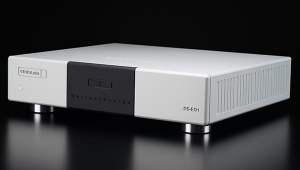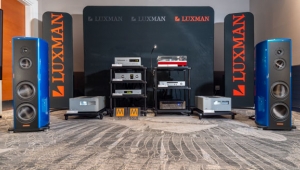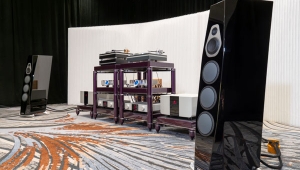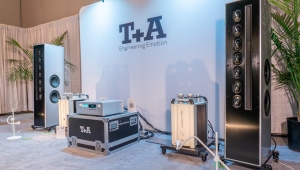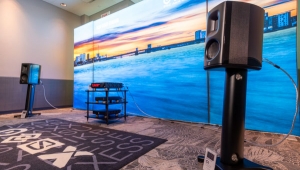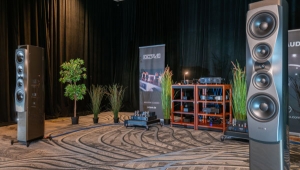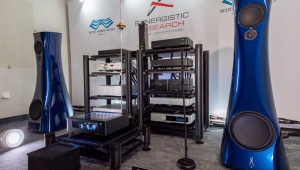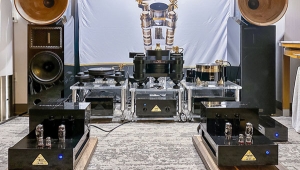| Columns Retired Columns & Blogs |
Fair Use Support
As tighter restrictions on the use of both audio and video digital content loom in the legislature, the Home Recording Rights Coalition (HRRC) and the Consumer Electronics Association (CEA) have teamed up to counter the ever-increasing demands from copyright holders. The HRRC, founded in 1981, is a leading advocacy group for consumers' rights to use home electronics products for private, non-commercial purposes.
The HRRC notes that one of its core concerns is that the flexibility offered by new digital communications technology "not be reserved for enjoyment only by content industries. Consumers' quiet enjoyment of digital products should include a reasonable expectation of sending content to second residences, vehicles, or close family members. The challenge before the Federal Communications Commission (FCC) is to preserve consumer expectations while seeking to address the concerns of copyright proprietors."
In filings submitted last week with the FCC regarding digital broadcast copy protection, the CEA and the HRRC emphasize the importance of preserving normal consumer expectations under any digital copy protection regime. The FCC currently is reviewing proposals related to digital copy protection, which could include encryption technologies or a "broadcast flag" approach intended to secure digital content transmissions.
The CEA says it submitted its filing in the context of its "Guiding Principles on Intellectual Property," which emphasizes that legitimate home recording must not be confused with piracy. The CEA adds that the Supreme Court's 1984 Betamax case ruling protecting private, non-commercial home recording of copyrighted programs remains "vital and viable" in the digital age.
Both organizations cite "fair use" as central to their positions. The HRRC urges the FCC to keep in mind the "historic and current importance of fair use to society as a whole, given its importance to the lives of the American public." The group reiterates comments from US Representative Rick Boucher, who recently introduced legislation reaffirming fair-use rights: "Fair use is a pressure relief valve on what would otherwise be total monopoly control by the owner of a copyright over the use of the copyrighted material."
The HRRC states, "Fair use, as it explicitly protects conduct that does not require the authorization of the proprietor, has been the conceptual bulwark for protecting consumers as technological advances make control over their home conduct increasingly possible." At the same time, the HRRC notes that, under the doctrine derived from the Supreme Court's Betamax decision, fair use is but one of a number of possible substantial uses that may be non-infringing.
The CEA adds, "Though not codified by statute, fair use is a judicial doctrine, and it is neither practical nor desirable to resort to court action to test its every application. What is possible is the preservation of fair-use values in the face of demands for more specific and granular levels of authorization."
The CEA's Michael Petricone explains the group's position: "Interactive digital technology offers consumers endless benefits, but also presents the potential danger of content owners choosing by 'remote control' not only the copy status of content in consumers' homes, but also the home interfaces that may be active at any time. This clearly exceeds the reasonable protections that may be necessary to guard against illegal use of copyrighted content for personal gain.
"Ultimately, the government must ensure that customary consumer choice and the liberties, privacy, and freedoms of one's own home prevail. As the CEA consistently has maintained, the fair use, free commerce in devices, and first sale doctrines provide that there should not be any constraint on re-transmission within a circle of friends and family and that this fair use 'circle' may appropriately extend both within and outside of the home.
"In discussing home devices that may be connected to networks, some have found it tempting to apply the word 'piracy' to ordinary consumer practices. Doing so moves the issue away from reasonable and customary home recording, and onto practices that have nothing to do with home recording at all. As our filing notes, the CEA specifically would oppose any 'flag' regime that would require a higher level of user authorization for private, non-commercial activities within the home or the home network."
The CEA's filing concludes, "Any consideration of these issues will reach a seriously flawed result if consumer home network devices are viewed first as implements of 'piracy,' and only secondarily as devices essential to reasonable and customary consumer activity."
- Log in or register to post comments


















